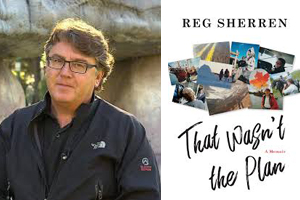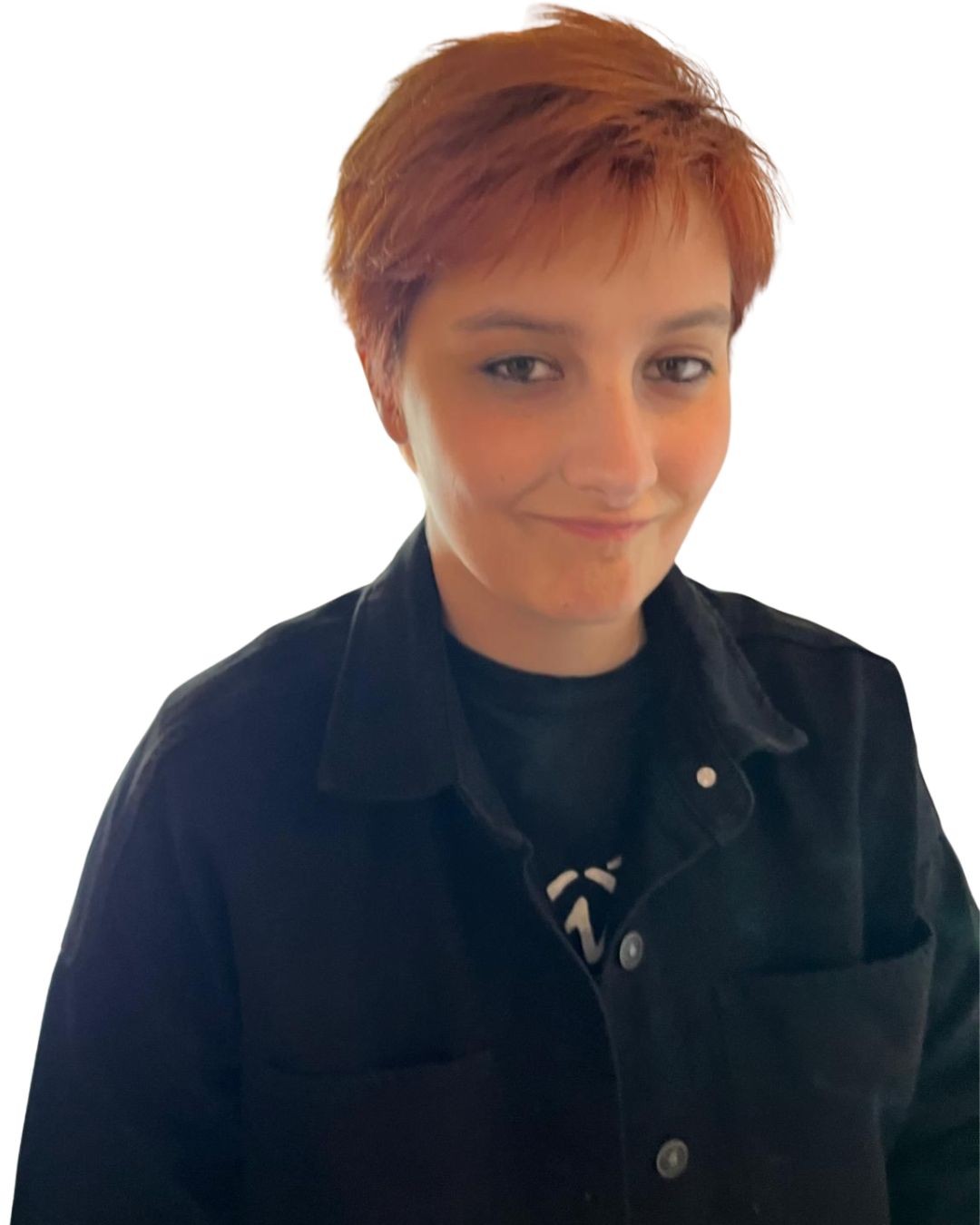Features
Former CBC TV host Reg Sherren tells of his time with the mother corp.
3 lines

By MARTIN ZEILIG
For “a freckle-faced, red-headed kid growing up in small-town Western Labrador,” who sort of stumbled into his profession, former CBC reporter Reg Sherren sure made a name for himself.
He ended up travelling the world and telling stores for CBC’s flagship news program, The National, as well as hosting the popular TV program, Country Canada.
“That plan certainly wasn’t part of any plan I was aware of,” he writes in this entertaining, insightful—in a number of ways – and anecdote laden memoir: “That Wasn’t the Plan: A memoir by Reg Sherren”
But, then life so often turns out that way. Physicists might even say it is due to the randomness of existence. Others would call it fate.
Reg Sherren is a popular commentator, writer and freelance producer. A two-time Gemini and Canadian Screen Award nominee, Sherren has also been the recipient of numerous journalism awards from the New York and Columbus international film and video festivals, as well as the Radio-Television Directors’ Association, says his brief bio. He lives in Winnipeg.
Sherren got his first job at age 15 as an announcer on a radio station in his home town, where his father was one of the iron-ore mine managers. It was the same station that, as he writes, “offered the ability to escape,” because radio stations from “faraway places would find their way skipping across the Labrador sky: CFGO Ottawa, WOR New York or WBZ Boston.”
He had absolutely zero training for the job.
“For my first show I was given some very brief instruction by the fellow on the air before me, a guy who called himself Buffalo Bill Cody,” the author writes. “He looked the part like Wild Bill Hickok with his long hair, moustache, cowboy hat and fringe jacket.”
Being on the air was only one of the teenager’s duties. He also had to make sure all the garbage cans were clean for Monday morning, and change the paper on the teletype machine.
It was a good training ground, or at least an introduction, for the future broadcast journalist.
After graduating from high school, Sherren studied journalism at Canadore College in North Bay.
“It was a fabulous place to learn,” the author says.
Sherren started out his professional career as the main television news anchor at CKPR-TV in Thunder Bay, Ontario.
“Four years flew by as I honed my craft, even eventually making a little more money, and I landed my first byline—my name on a network radio report on forest fires in Northwestern Ontario, pounding out on teletypes across the system,” he writes.
Thunder Bay was also the place where he met “my beautiful future wife, Pamela Tennant” – the weekend anchor at CKPR and a daily reporter.
“She left before me, taking a reporting gig with CTV Edmonton,” Sherren says. “Not long afterwards, I chased her west, landing a job at CBC Calgary.”
Over the years, Sherren would cover stories that “crisscrossed” Canada. He also did everything from guest hosting network radio shows like Cross Country Checkup to reporting from war zones.
He found so much history, so many characters and so many stories to tell throughout his varied career with CBC.
Among the many vivid “behind-the scenes” stories Sherren shares are about riding on the back of a humpback whale; a journey down “the world’s longest ice road” in a solar-powered car, visiting Nagaski, Japan with a former Canadian solider, John Ford, who was a Japanese prisoner of war during the Second World War and who had lived through the second atomic bomb ever dropped in wartime—in Nagasaki; doing an item for a Remembrance Day (November 11) special on The National on Nichola Goddard, a Captain in the Canadian Armed Forces, who was the first Canadian women to be killed in combat (during a tour of duty in Afghanistan); researching a story about First World War hero Francis Pegahmagabow, the most highly decorated Aboriginal soldier in Canadian history; interviewing Roberta Bondar, the first Canadian woman in space; and much more.
Sherren writes that he had a “long-standing commitment to chronicling our country’s military service.”
He also praises many of his colleagues and other fellow workers at the CBC, such as local television producer Cecil Rosner, for their support and creative initiatives over the years.
His modus operandi never wavered: “When approaching people to do interviews, to let you in, you must be 1) professional, 2) truthful and, above all, 3) respectful. I never lie or try to fudge what the call is about.”
Sherren left the CBC, after some four decades as one of their top journalists, at the end of December 2017.
He writes that he misses the idea of the CBC, “but then, I had been missing that for some time before I left. What leaving has empowered me to do is share a few observations about the state of public broadcasting in this country.”
Sherren maintains that CBC stories are more urban based, and the country isn’t being reflected like it used to be on the TV, the internet or even the radio.
“People pay their taxes,” he writes. “Their taxes pay for the CBC.”
He recommends, among other things, that CBC.ca should decommercialize. He suggest that instead of selling advertising, set up a news wire service like Reuters or CP to help the privates survive, or at least transition.
Sherren also calls on the CBC “to be the champion of maintaining diversity of voices in all broadcasting/media communities, not playing a role in their demise. And it should seriously think about ending relationships with entities like Facebook.
“Take chances. Don’t be afraid of failure. Give the future a chance. Develop shows from the inside. Be the CBC.”
Some of his suggestions, especially maintaining diversity, seem to be happening now in the CBC.
“The CBC helped me grow as a journalist and as a human being,” Sherren says. “It gave me and my family a wonderful life and allowed me to travel the world to bring you stories. Together we explored everything from the best to the worst that Canadians, as a group of people on this planet, have to offer. For that I will be eternally grateful.”
That’s a pretty good journey for a wide-eyed, ambitious and talented fellow from Wabush.
That Wasn’t the Plan: A memoir by Reg Sherren
Published by Douglas & McIntyre
350 pg.
Features
Are Niche and Unconventional Relationships Monopolizing the Dating World?

The question assumes a battle being waged and lost. It assumes that something fringe has crept into the center and pushed everything else aside. But the dating world has never operated as a single system with uniform rules. People have always sorted themselves according to preference, circumstance, and opportunity. What has changed is the visibility of that sorting and the tools available to execute it.
Online dating generated $10.28 billion globally in 2024. By 2033, projections put that figure at $19.33 billion. A market of that size does not serve one type of person or one type of relationship. It serves demand, and demand has always been fragmented. The apps and platforms we see now simply make that fragmentation visible in ways that provoke commentary.
Relationship Preferences
Niche dating platforms now account for nearly 30 percent of the online dating market, and projections suggest they could hold 42 percent of market share by 2028. This growth reflects how people are sorting themselves into categories that fit their actual lives.

Some want a sugar relationship, others seek partners within specific religious or cultural groups, and still others look for connections based on hobbies or lifestyle choices. The old model of casting a wide net has given way to something more targeted.
A YouGov poll found 55 percent of Americans prefer complete monogamy, while 34 percent describe their ideal relationship as something other than monogamous. About 21 percent of unmarried Americans have tried consensual non-monogamy at some point. These numbers do not suggest a takeover. They suggest a population with varied preferences now has platforms that accommodate those preferences openly rather than forcing everyone into the same structure.
The Numbers Tell a Different Story
Polyamory and consensual non-monogamy receive substantial attention in media coverage and on social platforms. The actual practice rate sits between 4% and 5% of the American population. That figure has remained relatively stable even as public awareness has increased. Being aware of something and participating in it are separate behaviors.
A 2020 YouGov poll reported that 43% of millennials describe their ideal relationship as non-monogamous. Ideals and actions do not always align. People answer surveys about what sounds appealing in theory. They then make decisions based on their specific circumstances, available partners, and emotional capacity. The gap between stated preference and lived reality is substantial.
Where Young People Are Looking
Gen Z accounts for more than 50% of Hinge users. According to a 2025 survey by The Knot, over 50% of engaged couples met through dating apps. These platforms have become primary infrastructure for forming relationships. They are not replacing traditional dating; they are the context in which traditional dating now occurs.
Younger users encounter more relationship styles on these platforms because the platforms allow for it. Someone seeking a conventional monogamous partnership will still find that option readily available. The presence of other options does not eliminate this possibility. It adds to the menu.
Monopoly Implies Exclusion
The framing of the original question suggests that niche relationships might be crowding out mainstream ones. Monopoly means one entity controls a market to the exclusion of competitors. Nothing in the current data supports that characterization.
Mainstream dating apps serve millions of users seeking conventional relationships. These apps have added features to accommodate other preferences, but their core user base remains people looking for monogamous partnerships. The addition of new categories does not subtract from existing ones. Someone filtering for a specific religion or hobby does not prevent another person from using the same platform without those filters.
What Actually Changed
Two things happened. First, apps built segmentation into their business models because segmentation increases user satisfaction. People find what they want faster when they can specify their preferences. Second, social acceptance expanded for certain relationship types that previously operated in private or faced stigma.
Neither of these developments amounts to a monopoly. They amount to market differentiation and cultural acknowledgment. A person seeking a sugar arrangement and a person seeking marriage can both use apps built for their respective purposes. They are not competing for the same resources.
The Perception Problem
Media coverage tends toward novelty. A story about millions of people using apps to find conventional relationships does not generate engagement. A story about unconventional relationship types generates clicks, comments, and shares. This creates a perception gap between how often something is discussed and how often it actually occurs.
The 4% to 5% practicing polyamory receive disproportionate coverage relative to the 55% who prefer complete monogamy. The coverage is not wrong, but it creates an impression of prevalence that exceeds reality.
Where This Leaves Us
Niche relationships are not monopolizing dating. They are becoming more visible and more accommodated by platforms that benefit from serving specific needs. The majority of people seeking relationships still want conventional arrangements, and they still find them through the same channels.
The dating world is larger than it was before. It contains more explicit options. It allows people to state preferences that once required inference or luck. None of this constitutes a takeover. It constitutes an expansion. The space for one type of relationship did not shrink to make room for another. The total space grew.
Features
Matthew Lazar doing his part to help keep Israelis safe in a time of war

By MYRON LOVE It is well known – or at least it should be – that while Israel puts a high value of protecting the lives of its citizens, the Jewish state’s Islamic enemies celebrate death. The single most glaring difference between the opposing sides can be seen in the differing approach to building bomb shelters to protect their populations.
Whereas Hamas and Hezbollah have invested untold billions of dollars over the past 20 years in building underground tunnels to protect their fighters while leaving their “civilian” populations exposed to Israeli bombs, not only has Israel built a highly sophisticated anti-missile system but also the leadership has invested heavily in making sure that most Israelis have access to bomb shelters – wherever they are – in war time.
While Israel’s bomb shelter program is comprehensive, there are still gaps – gaps which Dr. Matthew Lazar is doing his bit to help reduce.
The Winnipeg born-and raised pediatrician -who is most likely best known to readers as a former mohel – is the president of Project Life Initiatives – the Canadian branch of Israel-based Operation Lifeshield whose mission is to provide bomb shelters for threatened Israeli communities.
Lazar actually got in on the ground floor – so to speak. It was a cousin of his, Rabbi Shmuel Bowman, Operation Lifeshield’s executive director, who – in 2006 – founded the organization.
“Shmuel was one of a small group of American olim and Israelis who were visiting the Galilee during the second Lebanon war in 2006 and found themselves under rocket attack – along with thousands of others – with no place to go,” recounts Lazar, who has two daughters living in Israel. “They decided to take action. I was one of the people Shmuel approached to become an Operation Lifeshield volunteer.
Since the founding of Lifeshield, Lazar reports, over 1,000 shelters have been deployed in Israel. The number of new shelter orders since October 7, 2023 is 149.
He further notes that while the largest share of Operation Lifeshield’s funding comes from American donors, there has been good support for the organization across Canada as well.
One of the major donors in Winnipeg is the Christian Zionist organization, Christian Friends of Israel (FOI) Canada which, in September, as part of its second annual “Stand With Israel Support” evening – presented Lazar and Operation Lifeshield with a cheque for $30,000 toward construction of a bomb shelter for the Yasmin kindergarten in the Binyamina Regional Council in Northern Israel.
Lazar reports that to date the total number of shelters donated by Friends of Israel Gospel Ministry (globally) is over 100.
Lazar notes that the head office for Project Life Initiatives is – not surprisingly – in Toronto. “We communicate by telephone, text and Zoom,” he says.
He observes that – as he is still a full time pediatrician – he isn’t able to visit Israel nearly as often as he would like to. He manages to go every couple of years and always makes a point of visiting some of Operation Lifeshield’s projects.
(He adds that his wife, Nola, gets to Israel two or three times a year – not only to visit family, but also in her role as president of Mercaz Canada – the Canadian Conservative movement’s Zionist arm.)
“This is something I have been able to do to help safeguard Israelis,” Lazar says of his work for Operation Lifeshield. “This is a wonderful thing we are doing. I am glad to be of help. ”
Features
Patterns of Erasure: Genocide in Nazi Europe and Canada

By LIRON FYNE When we think of the word genocide, our minds often jump to the Holocaust, the mass-scale, systemic government-led murder of six million Jews by Nazi Germany during the Second World War, whose unprecedented scale and methods led to the very term ‘genocide’ being coined. On January 27th, 2026, we will bow our heads for International Holocaust Remembrance Day, the 80th year of remembrance.
Less frequently do we connect genocidal intent to the campaign against Indigenous peoples in Canada; the forced displacement, cultural destruction, and systematic killing that sought to erase Indigenous peoples. The genocide conducted by the Nazis and the genocidal intent of the Canadian government, though each unique in scale, motive, and implementation, share many conceptual similarities. Both were driven by ideologies of racial superiority, executed through governmental precision, and justified by the perpetrators as a moral mission.
At their core rests the concept of dehumanization. In Nazi Germany, Jews were viewed as subhuman, contaminated, and a threat to the ‘Aryan’ race. In Canada, Indigenous peoples were represented as obstacles to ‘progress’ and seen as hurdles to a Christian, Eurocentric nation. These ideas, this dehumanization, turned human beings into problems to be solved. Adolf Hitler called it the ‘Jewish question,’ leading to an official policy in 1942 called the ‘Final Solution to the Jewish Question,’ whereas Canadian officials called it the ‘Indian problem.’ The language is similar, a belief that one group’s existence endangers the destiny of another. The methods of extermination differed in practice and outcome, but the language of intent resembles one another.
The Holocaust’s concentration camps and carefully engineered gas chambers were designed for efficient, industrial-scale killing, resulting in mass murder. The well-organized plan of systematic degradation, deadly riots, brutal camp conditions, and designated killing centres were only a few of the ways the Nazis worked to eliminate the Jews. The Canadian government’s weapons were policy, assimilation and abandonment. Such as the Indian Act, reserves, and residential schools, which were all meant to ‘kill the Indian in the child,’ cutting generations off from their languages, families, and cultures. Thousands of Indigenous children died in residential schools, buried in unmarked graves near schools that called themselves places of learning. Both systems were backed by either religion or ideology; Nazi ideology brought together racist eugenic policies and virulent antisemitism, while Canada’s genocidal intent was supported by Christian Protestantism claiming to save Indigenous souls by erasing their heritage.
The Holocaust was a six-year campaign of complete industrialized extermination, mass murder with a mechanized intent, on a scale that remains historically unique. The Truth and Reconciliation Commission describes Canada’s indigenous genocide as a cultural one that unfolded over centuries through assimilation and the destruction of indigenous languages and identities. The Holocaust ended with the liberation of the camps and a global recognition of the atrocities committed. However, the generational trauma and dehumanization of antisemitism carry on. For Indigenous peoples in Canada, the effects of the genocidal intent continue to this day, visible in displacement, poverty, and intergenerational trauma. While these histories differ in form and timeline, both are rooted in dehumanization and the belief that some lives are worth less than others.
A disturbing similarity lies in the aftermath: silence and denial. The Holocaust forced the world to confront the atrocity with the vow of ‘Never Again,’ which has now been unearthed and reformed as ‘Never Again is Now,’ after the October 7th, 2023, massacre by Hamas. The largest massacre of Jewish people since the Holocaust, and the denial of the atrocities committed on October 7th, highlight the same Holocaust denial we see rising around the world. In Canada, for decades, the genocidal intent was hidden behind narratives of kindness and social progress. Only in recent years, through survivor testimony for the Truth and Reconciliation Commission, and the discovery of unmarked graves, has the truth gained recognition. But acknowledgment without justice risks repeating the same patterns of erasure.
Comparing these atrocities committed is not about comparing pain or scale; it is about understanding the shared systems that enabled them. Both demonstrate how racism, superiority, and dehumanization can be used to justify the destruction of human beings. Remembering is not enough in Canada. True remembrance demands accountability, land restitution, reparations, and education that confronts Canada’s ongoing colonial legacy. When we say ‘Never Again is Now’, we hold collective action to combat antisemitism in all forms. The same applies to Truth & Reconciliation; it must be more than a slogan; we must apply action to Truth & ReconciliACTION.
Liron Fyne is a 12th-grade student at Gray Academy of Jewish Education in Winnipeg. They are currently a Kenneth Leventhal High School Intern at StandWithUs Canada, a non-profit education organization that combats antisemitism.


